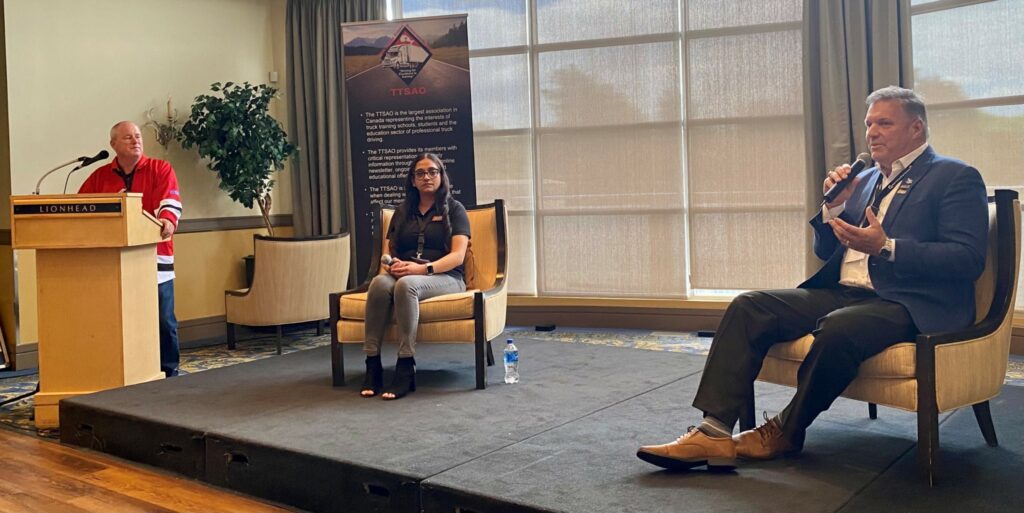Carrier-school relationships enhance supply of new drivers
Carriers are always on the lookout for candidates who will drive for them for a long time. Building and maintaining good relationships with reputed driving schools ensures a pipeline of entry-level truckers for the future.
Tom Boehler, Erb Transport’s senior director of safety and compliance, said the company recognized a driver shortage in 2000 and started working with schools to secure a good pipeline of new drivers.
Speaking at the sixth annual TTSAO (Truck Training Schools Association of Ontario) conference in Brampton, Ont., on July 26, Boehler added these connections let students at schools understand the kind of work the company does and its culture.

Ravneet Khroud, driver recruiter at Eassons Transport, who participated in the discussion, said due to a shortage of qualified drivers it would be difficult to find candidates who fit with her company if not for relationships with driving schools. “We can find qualified drivers who trained with qualified trainers,” she said. Schools also benefit by connecting new graduates with jobs at reputed fleets, enhancing their reputation.
After Covid hit in 2020, carrier officials’ visits to schools came to a standstill. Erb Transport has begun presenting at schools again. Eassons Transport has reached out to schools and is awaiting permission for visits.
Reality check
Gerald Carrol, TTSAO carrier group chairman, who moderated the discussion, said schools paint a great picture of what life as a truck driver will be like. Carrier officials can share information about real conditions and experiences about what the job will actually entail.
Finishing programs help companies hire new drivers and instill the carrier’s safety and operational culture.
Boehler said Erb Transport began an eight- to 12-week finishing program designed for longhaul work in 2000. The fleet has a curriculum and pre-qualification for trainers. “We try to split new drivers between two trainers, so they get variety on where they would go,” he said. Erb also has a benchmark on grading recruits daily on specific items. The company is now working with local drivers on a reduced six-week program.
Coaching program
Khroud said Eassons Transport conducts a four-week coaching program. The carrier has about 25 coaches who train new drivers on local, regional and cross-border work. They learn about reefer operation and border crossings and are evaluated after 15 and 45 days.
Sometimes a new driver hired by a fleet may need additional training in some aspect of the skills needed to do the job. Both, Khroud and Boehler, said they have sent those drivers back to the school they graduated from to undergo training.
The pandemic has affected hiring of new drivers due to social distancing, illnesses, and personal comfort levels. Erb hired only eight new drivers last year and eight this year. Boelher aims to hire 20 to 25 this year and the goal is to get to 40 in the next couple of years. Eassons hired 20 to 25 new drivers pre-Covid and this year five or six have been employed, with the target being 20.
Have your say
This is a moderated forum. Comments will no longer be published unless they are accompanied by a first and last name and a verifiable email address. (Today's Trucking will not publish or share the email address.) Profane language and content deemed to be libelous, racist, or threatening in nature will not be published under any circumstances.
-
These programs are very expensive to run. Insurance is a big factor for those that haul peak season grain and other agriculture products. The federal government needs to have a national program to insure and test new drivers
Problem is most truck driver training schools are not very good.